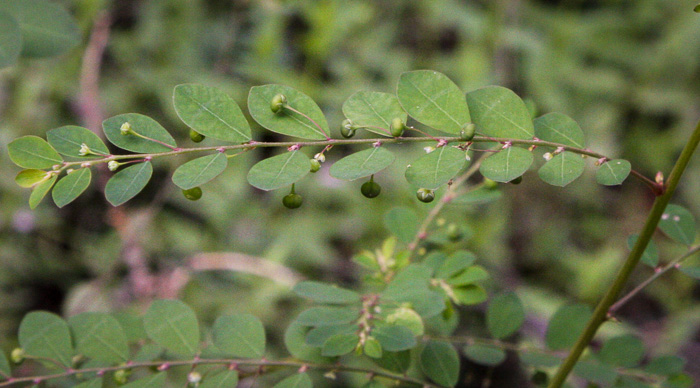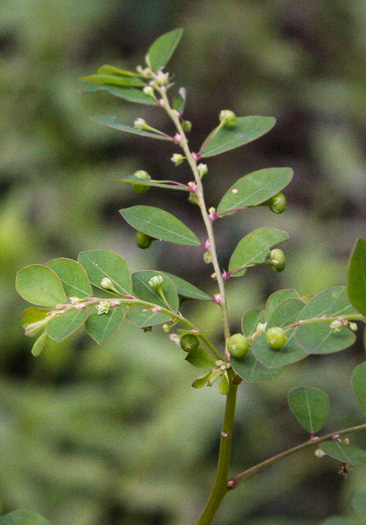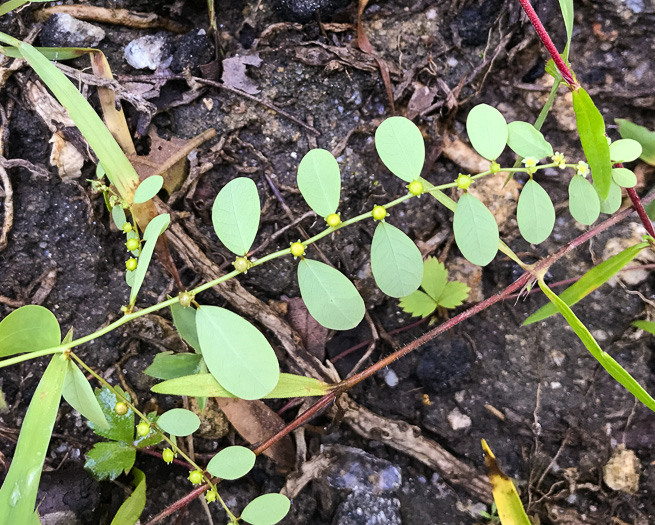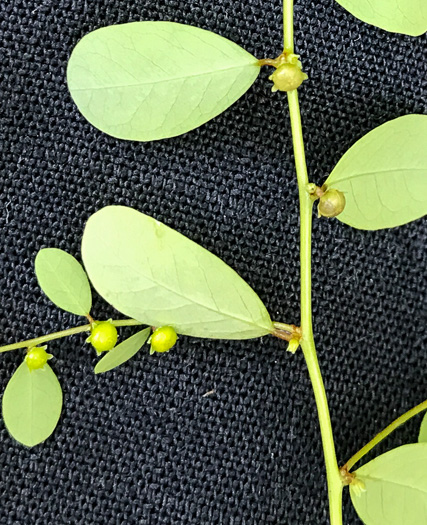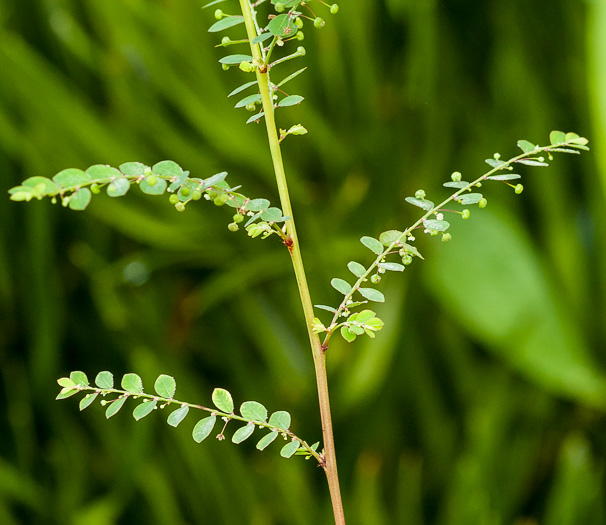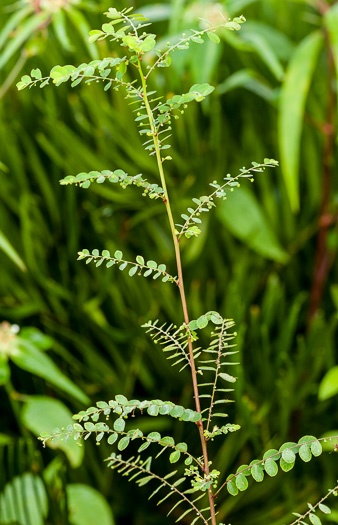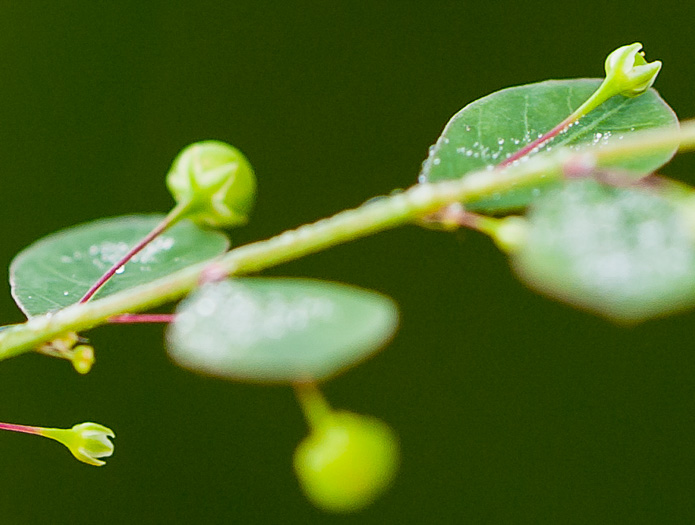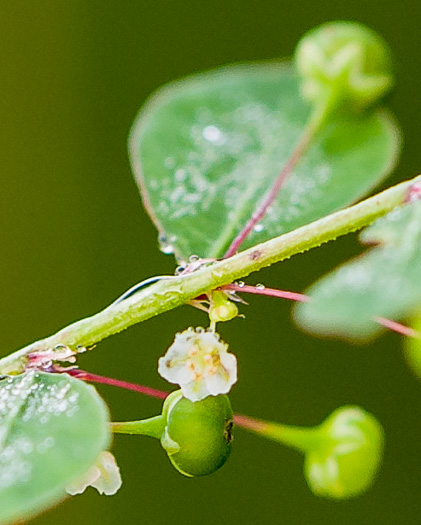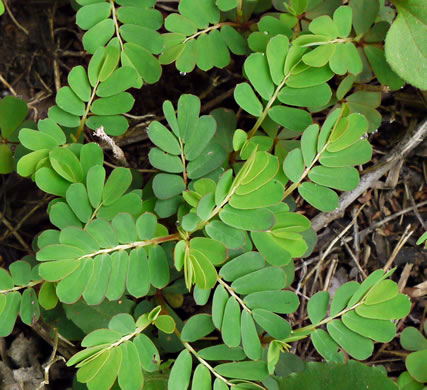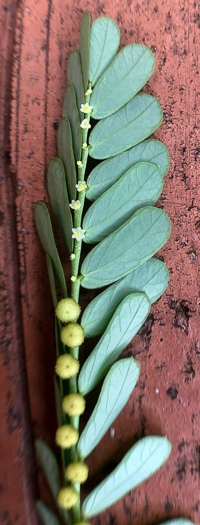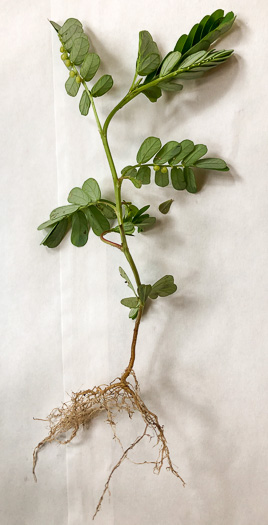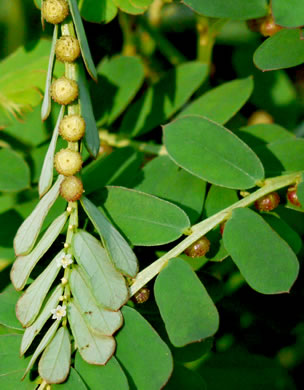Hovering over an image will enlarge it and point out features (works better on desktop than on mobile).
![]() A camera indicates there are pictures.
A camera indicates there are pictures.
![]() A speaker indicates that a botanical name is pronounced.
A speaker indicates that a botanical name is pronounced.
![]() A plus sign after a Latin name indicates that the species is further divided into varieties or subspecies.
A plus sign after a Latin name indicates that the species is further divided into varieties or subspecies.
Most habitat and range descriptions were obtained from Weakley's Flora.
Your search found 3 taxa in the family Phyllanthaceae, Leaf-flower family, as understood by Weakley's Flora.

![]() Common Name:
Carolina Leaf-flower
Common Name:
Carolina Leaf-flower
Weakley's Flora: (4/14/23) Phyllanthus caroliniensis FAMILY: Phyllanthaceae
SYNONYMOUS WITH PLANTS National Database: Phyllanthus caroliniensis ssp. caroliniensis FAMILY: Euphorbiaceae
INCLUDED WITHIN Vascular Flora of the Carolinas (Radford, Ahles, & Bell, 1968): Phyllanthus caroliniensis 107-10-001 FAMILY: Euphorbiaceae
Habitat: Roadsides, moist woodlands, forests, and fields, often in seasonally wet, muddy places
Common (rare in Mountains)
Native to the Carolinas & Georgia

![]()
![]() Common Name:
Mascarene Island Leaf-flower
Common Name:
Mascarene Island Leaf-flower
Weakley's Flora: (4/24/22) Moeroris tenella FAMILY: Phyllanthaceae
SYNONYMOUS WITH PLANTS National Database: Phyllanthus tenellus FAMILY: Euphorbiaceae
INCLUDING (MISAPPLIED) (MISIDENTIFIED) Vascular Flora of the Carolinas (Radford, Ahles, & Bell, 1968): Phyllanthus amarus 107-10-002 FAMILY: Euphorbiaceae
Habitat: Disturbed areas, especially in and around greenhouses
Uncommon (rare north of SC Coastal Plain, rare in Piedmont)
Non-native: Mascarene Islands

![]()
![]() Common Name:
Chamber Bitter, Gripeweed
Common Name:
Chamber Bitter, Gripeweed
Weakley's Flora: (4/24/22) Emblica urinaria FAMILY: Phyllanthaceae
INCLUDED WITHIN PLANTS National Database: Phyllanthus urinaria FAMILY: Euphorbiaceae
Habitat: Gardens, roadsides, and other disturbed ground, apparently preferring nitrogen-rich or fertilized soils
Uncommon in Coastal Plain, rare in Piedmont
Non-native: tropical southeast Asia
Your search found 3 taxa. You are on page PAGE 1 out of 1 pages.


